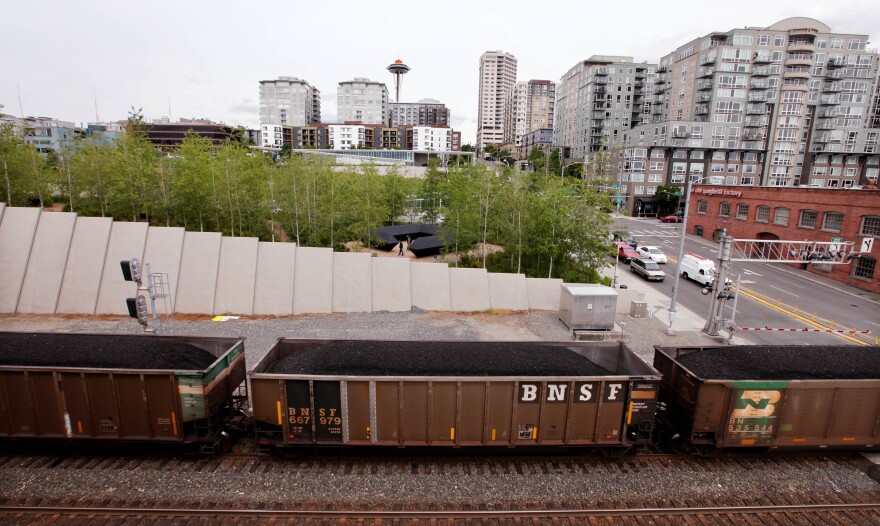A trial begins in federal court in Seattle Monday on whether the BNSF Railway Company can be held liable for claims that coal dust from its rail cars is causing water pollution.
The suit was brought by seven environmental groups, including the Sierra Club and Puget Soundkeeper, in 2013. They say BNSF should be required to obtain a permit for coal dust pollution under the Clean Water Act.
Lauren Goldberg is a staff attorney for Columbia Riverkeeper, one of the groups arguing the case. She says train cars are spilling toxic pollution along tracks that crisscross Washington through river valleys and along Puget Sound.
“The coal dust is going directly into water bodies that are used as drinking water sources that are home to endangered salmon and to other resident fish that people eat. And there’s no reason why a company as big as BNSF can’t get its act together and control its pollution, like every other company in our country is required to do,” Goldberg said.
Late last month, U.S. District Court Judge John Coughenour ruled that coal dust and particles falling directly into the water from passing trains would be a violation. But he declined to find BNSF immediately liable and set the case for trial.
BNSF says since 2011, they’ve had a rule in place that virtually eliminates any issues with coal dust. Spokeswoman Courtney Wallace says the company requires coal shippers to pack their loads by mounding it into the shape of a loaf of bread.
“And that profile, that shape reduces issues with wind. And then by adding what’s called a topping agent, which is like Elmer’s glue, spraying that on there reduces any additional issues with coal dust,” Wallace said.
And last year, the company invested millions in a respraying facility at its rail yard in Pasco, to ensure all trains crossing Washington have sufficient topping to keep coal dust in.
Environmentalists say it’s not foolproof and coal is still entering Washington’s waterways. They’ll attempt to demonstrate that in court.
Case in point: Don McDermott owns a vineyard in the Columbia River Gorge and says BNSF lines run through his property, where he routinely sees coal dust spilling.
“Anyone that wants to come down to my house, I can show them exactly where it’s happening,” he said. “You can still see the coal trails that are going into these streams, so – it’s happening. It’s not like it’s a matter of opinion. You couldn’t really deny that it’s happening. I have photographic evidence of it.”
Additional issues in the case have to do with the technicalities of how "point source" pollution is defined under the Clean Water Act and whether interstate commerce laws that exempt railroads from many regulations could apply to coal dust.
The trial comes as a permit is pending for a new export terminal in Longview. If approved, it could add up to eight additional coal trains a day to rail lines that run from the Powder River Basin in Wyoming through the Columbia River Gorge.







